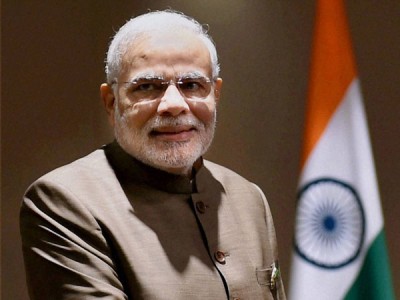India’s Man-Made Economic Calamity: How Many Will Die from Starvation, Malnutrition and Disease as a Result of Modi’s Demonetization?

At this point, every sane and responsible person in India should be asking: How many tens of thousands, or hundreds of thousands, or millions of people in India are going to die from hunger, starvation, malnutrition and disease as a result of Modi’s demonetisation?
Reports from the rural and semi-rural areas of India, from towns and villages, already indicate that hunger is widespread because of the nonexistence of cash.[1][2] This artificial crisis was created on November 8, 2016 when Prime Minister Narendra Modi arbitrarily declared 86% of the nation’s currency worthless as legal tender—a draconian diktat taken without any prior discussion with his cabinet, Parliament, or the people.

The so-called demonetisation policy has had devastating effects across all sectors of Indian society, crippling businesses and farmers, causing retail stores and vendors to shut down, increasing unemployment, and forcing ordinary people to lose billions of man-hours and woman-hours waiting in endless queues at banks to exchange unusable currency notes or to withdraw the meager cash allowed.
But the worst-hit are the poor, the day-laborers, and the rural and semi-rural working class who make up around two-thirds of India’s population—over 650 million people. The majority of these people have no bank accounts or credit cards. Nationwide, only 53% of Indians have bank accounts, and more than 300 million people have no government-approved ID which they needed to convert their hard-earned cash into approved denominations.[3]
Ironically, those worst-hit are the people who helped vote Modi into power, believing his populist rhetoric. Now, while they and their families go hungry, they outwardly give lip-service approval to Modi’s dictatorial scheme, which was supposedly designed to root out “black money”, ie, money that the rich and well-off hide from the tax authorities. But inwardly, they are seething with anger at what is being done to them.[4]
It is clear that India’s corporate-controlled mainstream media will continue to grossly underreport the havoc that Modi has wreaked upon the nation with his disastrous, ill-conceived experiment in social engineering.[5] It is also clear that the opposition parties in India are weak, divided, corrupt, and unable to come together and put an end to this unfolding tragedy.
Massive relief efforts should be underway to help all those who face shortages of food, medicine, and cash. Whether this means an immediate reversal of demonetization or interim measures, they should be carried out nationwide. But this is not happening. Instead, Modi arrogantly and defiantly defends his suicidal policy, while his party has launched a huge propaganda campaign extolling the benefits of India’s supposed transition to a digitalized cashless society. This is insane, as over 95% of the country’s transactions are done in cash.
Many more months will elapse before the government prints up the replacement currency and before the Automated Teller Machines (ATMs) have been recalibrated with the necessary new hardware and software. Right now, almost none of the ATMs work, despite the government/media lies and misinformation. While the bureaucrats and banks dither, how many people will die from hunger, starvation, or preventable disease because they and their children couldn’t get food or medical treatment?[6]
Perhaps it is time for intervention on a global scale. This issue should be brought before the attention of the United Nations. If necessary, resolutions should be passed condemning India’s government for its monumental negligence, inhumanity, and murderous scheme which affects one-sixth of humanity. Other groups that monitor human rights worldwide should be involved as well.
Notes
[1] Harsh Mander, “Crisis of cashlessness: Demonetisation is hurting rural India, drying up wages, household supplies and food”. Indian Express, Dec. 24, 2016. http://indianexpress.com/article/opinion/columns/demonetisation-crisis-of-cashlessness-4442343/
[2] Right To Food Campaign, ” Demonetisation Undermines The Right To Food And The Right To Life”. Countercurrents.org, Dec. 28, 2016. http://www.countercurrents.org/2016/12/28/demonetisation-undermines-the-right-to-food-and-the-right-to-life/
[3] Amit Varma, “Narendra Modi takes a great leap backwards. Mao would approve”. Times of India, Nov. 22, 2016. http://timesofindia.indiatimes.com/home/sunday-times/all-that-matters/Narendra-Modi-takes-a-great-leap-backwards-Mao-would-approve/articleshow/55517238.cms
[4] Vanita Akhaury, “Demonetisation effect: Hungry stomachs are making poor seethe to the point of silent revolt.” Firstpost.com, Nov. 19, 2016. http://www.firstpost.com/business/demonetisation-effect-hungry-stomachs-are-making-poor-seethe-to-the-point-of-silent-revolt-3114038.html
[5] “Demonitization 2016: Arrogance, Audacious & Atrocious”. Nov. 30, 2016. http://nharshakumar.blogspot.in/2016/11/demonitization-2016-arrogance-audacious.html
[6] A petition calling for the reversal of demonetisation and for Prime Minister Modi to step down can be found at:
https://secure.avaaz.org/en/petition/Prime_Minister_of_India_Say_Sorry_and_Resign/?cznTtlb
Walt Gelles is an American writer based in India. He is the author of Options: The Alternative Cancer Therapy Book (Avery/Penguin).

